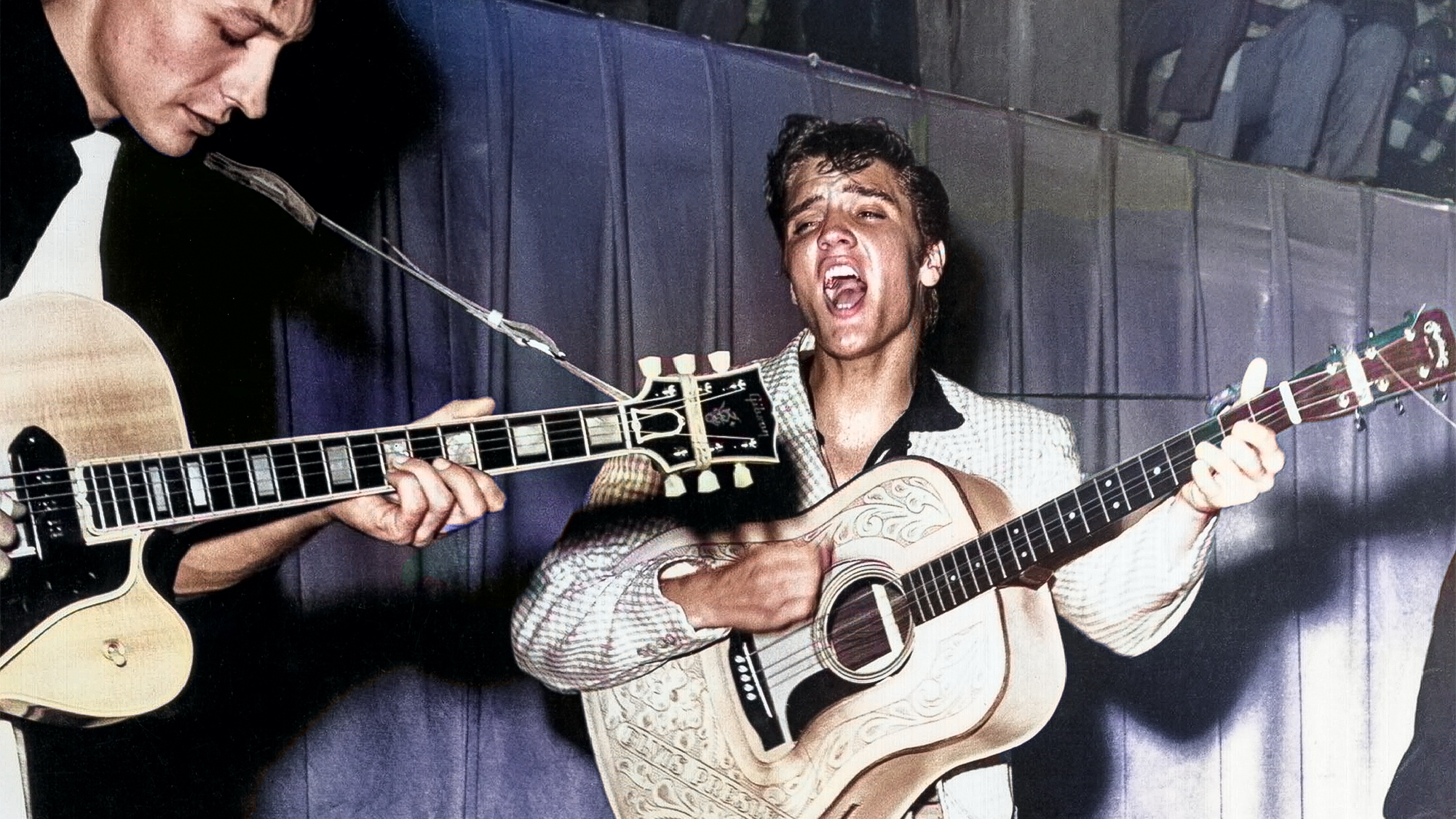“You can tell by the way we played songs like ‘Roxanne’” Andy Summers on why Eric Clapton bored him and how his love of jazz fueled the Police
"It’s too simple to play because it’s based on a five-note scale, and I had come way past that," the guitarist says

All the latest guitar news, interviews, lessons, reviews, deals and more, direct to your inbox!
You are now subscribed
Your newsletter sign-up was successful
For many guitarists, Eric Clapton, even in his youngest, rawest form, was a revelation to the electric guitar.
Clapton was barely out of his teens by the time one super fan had spray-painted “Clapton is God” on a London wall in the mid-’60s. He was a member of both the Yardbirds and John Mayall’s Bluesbreakers during that period, two bands which inadvertently earned a reputation for being production lines of guitar greats, and the hype around this particular hotshot almost single-handedly forged the cult of the guitar hero.
Andy Summers, though, was less overwrought by his talents, saying his heart and his tastes lay elsewhere.
Though Summers' earliest playing experiences were with British rhythm and blues group Zoot Money's Big Roll Band, he came from a very different school from Clapton. He would eventually ditch the U.K. scene to study classical guitar in Los Angeles. Despite later becoming a hit-maker in the Police, what turned him on, musically speaking, never changed.
So, while Clapton’s reputation reached fever pitch, Summers was deaf to the noise. He was focused on a rather different kind of guitar playing.
“When I was 14, my ears were trained by listening for hours on end to American jazz guitar players and trying to understand their solos and their lines, and that’s what I developed,” he told Let It Rock in late 2021.
“Then the blues scene developed in London, and people like Clapton came out of the woodwork, and the American blues singers took off. But my heart was in jazz — I liked Thelonious Monk, not Howlin’ Wolf!
All the latest guitar news, interviews, lessons, reviews, deals and more, direct to your inbox!
“Blues is very simple to me, and it was not that interesting when everybody copied Eric back in those days. It’s too simple to play because it’s based on a five-note scale, and I had come way past that.”
Summers also says his songwriting partnership with bass player Sting, who was as musically well-traveled as he was, allowed the Police to find a sweet spot between pop and progression.

“We both had a lot of harmonic knowledge that was a sort of exterior to pop music per se,” he says. “You can tell that was different by the way we played songs like ‘Roxanne’ which started off as bossa nova, and it’s got more interesting chords, or ‘Walking on the Moon’ where the opening chord is not something you do in a pop group. It was a perfect blend of musical sensibilities put into another framework.”
Yet, despite the pair’s stylistic collaging, he did have his reservations. After five years filling the charts with hits like “Message in a Bottle” and “Roxanne”, Summers showed his true colors by striking an unlikely partnership with Robert Fripp.
He believed his talents were stagnating and that he was “musically hemmed” in by the group’s pop-minded approach. Despite not being a fan of King Crimson, he knew tuning into Fripp’s oddball, leftfield, and highly polyrhythmic playing would be the perfect antidote.
His record label, A&M, worried it was commercial suicide. Summers fought his corner.
“A&M, who the Police were selling trillions of records for, didn't want me to do it at all,” Summers reveals. “But they didn't want to piss me off, because I had too much power at that point.
“Robert and I were both famous players in our respective groups, so I thought there'd be a lot of interest in it. Then it went into the Top 60 in the charts. It was a real sort of 'fuck you' to the record company.”
More artful than accessible, the instrumental album wasn’t exactly going to dominate dance clubs, but it gave Summers musical freedom, and he cherished those moments.
“Robert and I had no idea what we were going to play,” he said. “We just sat with our guitars and various bits of equipment and started to discover what could be made between us. It allowed you to move into a whole other sphere.”
A freelance writer with a penchant for music that gets weird, Phil is a regular contributor to Prog, Guitar World, and Total Guitar magazines and is especially keen on shining a light on unknown artists. Outside of the journalism realm, you can find him writing angular riffs in progressive metal band, Prognosis, in which he slings an 8-string Strandberg Boden Original, churning that low string through a variety of tunings. He's also a published author and is currently penning his debut novel which chucks fantasy, mythology and humanity into a great big melting pot.


